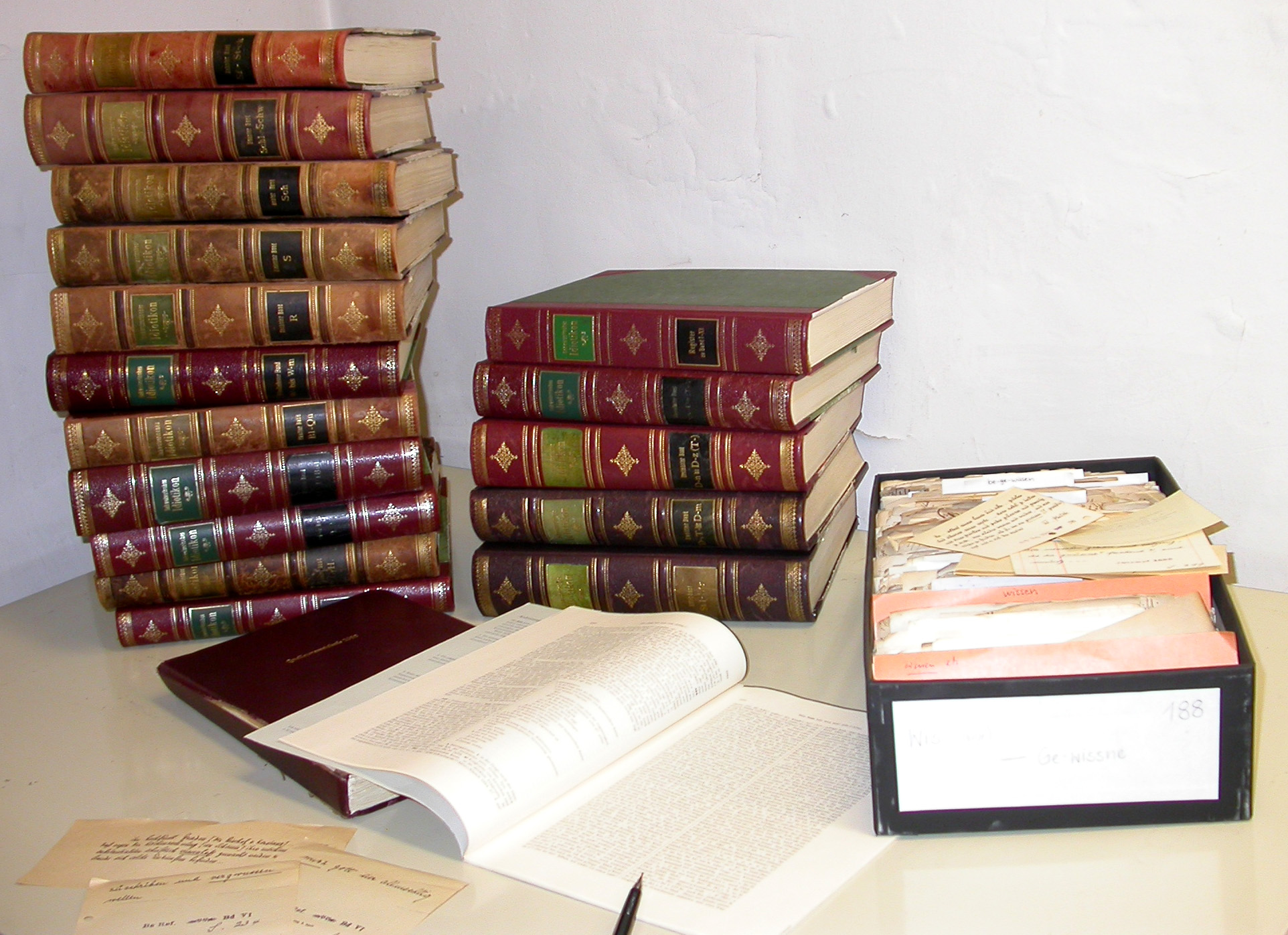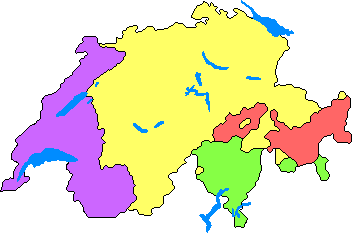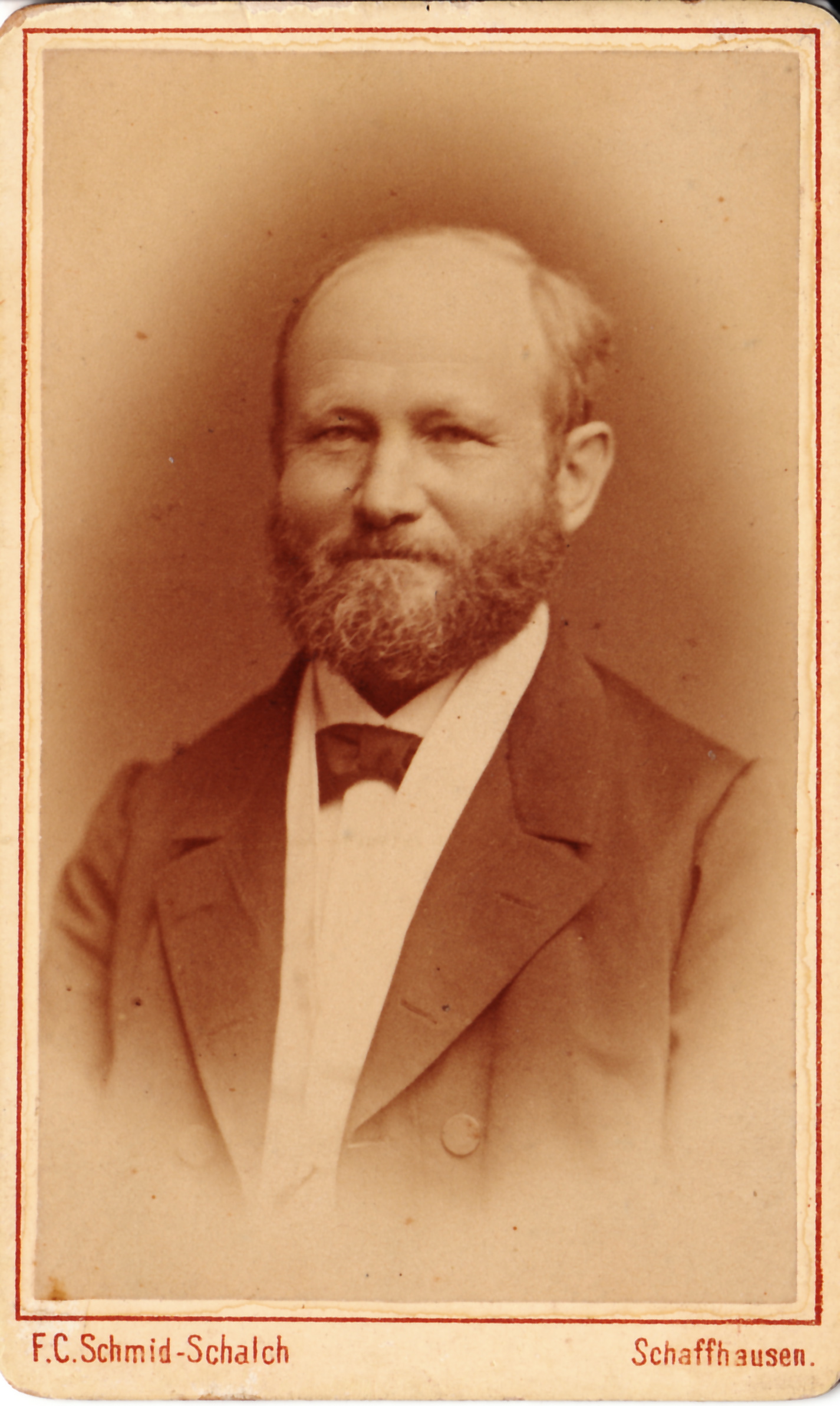|
Schweizerisches Idiotikon
''Schweizerisches Idiotikon'' ("the Swiss idioticon", also known as ''Wörterbuch der schweizerdeutschen Sprache'' "Dictionary of the Swiss German language") is an ongoing, major project of lexicography of the Swiss German dialects. Publication began in 1881 and is projected to be complete by 2022. Its scope includes the language since the end of the classical Middle High German period (13th century) and as such also represents the historical dictionary of the dialects of German-speaking Switzerland, and is one of the most detailed treatments of the Early Modern High German language in general. As of 2010, it contains 150,000 words. The history of the project began in 1862 with the foundation of a ''Verein für das Schweizerdeutsche Wörterbuch'', led by Friedrich Staub (1826–1896). Originally envisaged as a dictionary in four volumes, the first fascicle was published in 1881. From 1896, the project was led by Albert Bachmann (philologist), Albert Bachmann (1863–1934), ... [...More Info...] [...Related Items...] OR: [Wikipedia] [Google] [Baidu] |
Schweizerisches Idiotikon
''Schweizerisches Idiotikon'' ("the Swiss idioticon", also known as ''Wörterbuch der schweizerdeutschen Sprache'' "Dictionary of the Swiss German language") is an ongoing, major project of lexicography of the Swiss German dialects. Publication began in 1881 and is projected to be complete by 2022. Its scope includes the language since the end of the classical Middle High German period (13th century) and as such also represents the historical dictionary of the dialects of German-speaking Switzerland, and is one of the most detailed treatments of the Early Modern High German language in general. As of 2010, it contains 150,000 words. The history of the project began in 1862 with the foundation of a ''Verein für das Schweizerdeutsche Wörterbuch'', led by Friedrich Staub (1826–1896). Originally envisaged as a dictionary in four volumes, the first fascicle was published in 1881. From 1896, the project was led by Albert Bachmann (philologist), Albert Bachmann (1863–1934), ... [...More Info...] [...Related Items...] OR: [Wikipedia] [Google] [Baidu] |
Albert Bachmann (philologist)
Johann Albert Bachmann (12 November 1863, in Hüttwilen – 30 January 1934, in Samedan) was a Swiss lexicographer and dialectologist, professor for Germanic philology at Zürich University from 1896. From 1892 he was an editor of the ''Schweizerisches Idiotikon'' dictionary, acting as editor-in-chief from 1896 until his death. Bachmann specialized on Swiss German dialects. He edited the series ''Beiträge zur Schweizerdeutschen Grammatik'' (20 vols) and founded, together with Louis Gauchat, the Phonographic Archive of Zurich University in 1913. Works *''Beiträge zur Geschichte der schweizerischen Gutturallaute.'' Genossenschafts-Buchdruckerei, diss. Zürich 1886. *(ed., with Samuel Singer): ''Deutsche Volksbücher aus einer Zürcher Handschrift des fünfzehnten Jahrhunderts.'' Litterarischer Verein in Stuttgart, Tübingen 1889 (Bibliothek des Litterarischen Vereins in Stuttgart 185). *(ed.): ''Morgant der Riese.'' Litterarischer Verein in Stuttgart, Tübingen 1890 (Bibliothek d ... [...More Info...] [...Related Items...] OR: [Wikipedia] [Google] [Baidu] |
Swiss German Language
Swiss German (Standard German: , gsw, Schwiizerdütsch, Schwyzerdütsch, Schwiizertüütsch, Schwizertitsch Mundart,Because of the many different dialects, and because there is no defined orthography for any of them, many different spellings can be found. and others) is any of the Alemannic dialects spoken in the German-speaking part of Switzerland and in some Alpine communities in Northern Italy bordering Switzerland. Occasionally, the Alemannic dialects spoken in other countries are grouped together with Swiss German as well, especially the dialects of Liechtenstein and Austrian Vorarlberg, which are closely associated to Switzerland's. Linguistically, Alemannic is divided into Low, High and Highest Alemannic, varieties all of which are spoken both inside and outside Switzerland. The only exception within German-speaking Switzerland is the municipality of Samnaun, where a Bavarian dialect is spoken. The reason Swiss German dialects constitute a special group is their a ... [...More Info...] [...Related Items...] OR: [Wikipedia] [Google] [Baidu] |
Svenska Akademiens Ordbok
A complete set of ''Svenska Akademiens ordbok'', as of late 2014. The majority of the volumes remain unbound in this set. ''Svenska Akademiens ordbok'' (), abbreviated SAOB, is a dictionary published by the Swedish Academy, with the official title ''Ordbok över svenska språket utgiven av Svenska Akademien''. This dictionary is the Swedish counterpart of the ''Oxford English Dictionary'' (OED) or the ''Deutsches Wörterbuch'' (DWB). Work on the dictionary started in 1787 and the first volume was published in 1898 and as of 2021, when the latest volume appeared, work has progressed to the letter Å inclusively, leaving only the letters Ä and Ö to be finished. The dictionary has approximately 450,000 main entries. The searchable web version has been available since 1997. See also *''Svenska Akademiens ordlista ''Svenska Akademiens ordlista'' (, "Word list of the Swedish Academy"), abbreviated SAOL, is a spelling dictionary published every few years by the Swedish Academy. I ... [...More Info...] [...Related Items...] OR: [Wikipedia] [Google] [Baidu] |
Oxford English Dictionary
The ''Oxford English Dictionary'' (''OED'') is the first and foundational historical dictionary of the English language, published by Oxford University Press (OUP). It traces the historical development of the English language, providing a comprehensive resource to scholars and academic researchers, as well as describing usage in its many variations throughout the world. Work began on the dictionary in 1857, but it was only in 1884 that it began to be published in unbound fascicles as work continued on the project, under the name of ''A New English Dictionary on Historical Principles; Founded Mainly on the Materials Collected by The Philological Society''. In 1895, the title ''The Oxford English Dictionary'' was first used unofficially on the covers of the series, and in 1928 the full dictionary was republished in 10 bound volumes. In 1933, the title ''The Oxford English Dictionary'' fully replaced the former name in all occurrences in its reprinting as 12 volumes with a one-v ... [...More Info...] [...Related Items...] OR: [Wikipedia] [Google] [Baidu] |
Woordenboek Der Nederlandsche Taal
The ''Woordenboek der Nederlandsche Taal'' (''WNT''; ) is a dictionary of the Dutch language. It contains between 350,000 and 400,000 entries describing Dutch words from 1500 to 1976. The paper edition consists of 43 volumes (including three supplements) on 49,255 pages. It is believed to be the largest dictionary in the world in number of pages. The dictionary was nearly 150 years in the making from 1849; the first volume was published in 1864, and the final volume was presented to Albert II of Belgium and Beatrix of the Netherlands in 1998. Background The ''WNT'' follows the formula of the ''Oxford English Dictionary'' and the ''Deutsches Wörterbuch'' in being a historical dictionary whose entries are based on primary sources of actual usage. Its impetus was the inaugural 1849 ''Nederlandsch Congres'' ("Dutch Congress"), a conference of linguists from the Netherlands and Belgium. The conference, which was held alternately south and north of the border, ran from 1849 to 1912; ... [...More Info...] [...Related Items...] OR: [Wikipedia] [Google] [Baidu] |
Deutsches Wörterbuch
The ''Deutsches Wörterbuch'' (; "The German Dictionary"), abbreviated ''DWB'', is the largest and most comprehensive dictionary of the German language in existence.Synopsis of the ''Deutsches Wörterbuch'' at the Language Research Centre, Berlin-Brandenburg Academy of Sciences and Humanities, retrieved 27 June 2012.Clifford Wunderlich ''Deutsches Wörterbuch von Jacob und Wilhelm Grimm'' , Andover-Harvard Theological Library, Harvard University Divinity School, April 2012. retrieved 27 June 2012. Encompassing modern |
Germanic-speaking Europe
Most languages of Europe belong to the Indo-European language family. Out of a total European population of 744 million as of 2018, some 94% are native speakers of an Indo-European language. Within Indo-European, the three largest phyla are Romance, Germanic, and Slavic, they have more than 200 million speakers each and together account for close to 90% of Europeans. Smaller phyla of Indo-European found in Europe include Hellenic (Greek, 13 million), Baltic ( 7 million), Albanian ( 5 million), Celtic ( 4 million), Armenian ( 4 million) and Indo-Aryan (Romani, 1.5 million). Of the approximately 45 million Europeans speaking non-Indo-European languages, most speak languages within either the Uralic or Turkic families. Still smaller groups — such as Basque (language isolate), Semitic languages ( Maltese, 0.5 million), and various languages of the Caucasus — account for less than 1% of the European population between them. Immigration has added sizeable communities of sp ... [...More Info...] [...Related Items...] OR: [Wikipedia] [Google] [Baidu] |
Friedrich Staub
Friedrich Staub (30 March 1826, in Männedorf – 3 August 1896, in Fluntern) was a Swiss lexicographer, dialectologist and librarian. He studied theology and philosophy at the University of Zürich (1845–47) and philology at the University of Bonn (1847–48). From 1850 to 1858 he was in charge of a private school in his hometown of Männedorf, and afterwards spent several years as a private tutor in Zürich. From 1871 to 1887 he worked as a librarian at the Zentralbibliothek Zürich. He was a catalyst in the creation of the Schweizerische Nationalbibliothek (Swiss National Library).Staub, Friedrich Historischen Lexikon der Schweiz From 1862 he headed the ''Verein für das Schweizerdeutsche Wörterbuch'' (Association for the Swiss-German Dictionary) and up until 1896 was editor-in-chief of the '' |
Early Modern High German
{{disambiguation, geo ...
Early may refer to: History * The beginning or oldest part of a defined historical period, as opposed to middle or late periods, e.g.: ** Early Christianity ** Early modern Europe Places in the United States * Early, Iowa * Early, Texas * Early Branch, a stream in Missouri * Early County, Georgia Other uses * ''Early'' (Scritti Politti album), 2005 * ''Early'' (A Certain Ratio album), 2002 * Early (name) * Early effect, an effect in transistor physics * Early Records, a record label * the early part of the morning See also * Earley (other) Earley is a town in England. Earley may also refer to: * Earley (surname), a list of people with the surname Earley * Earley (given name), a variant of the given name Earlene * Earley Lake, a lake in Minnesota *Earley parser, an algorithm *Earley ... [...More Info...] [...Related Items...] OR: [Wikipedia] [Google] [Baidu] |
German-speaking Switzerland
The German-speaking part of Switzerland (german: Deutschschweiz, french: Suisse alémanique, it, Svizzera tedesca, rm, Svizra tudestga) comprises about 65 percent of Switzerland (North Western Switzerland, Eastern Switzerland, Central Switzerland, most of the Swiss Plateau and the greater part of the Swiss Alps). The variety of the German language spoken in Switzerland is called Swiss German which refers to any of the Alemannic dialects and which are divided into Low, High and Highest Alemannic. The only exception within German-speaking Switzerland is the municipality of Samnaun where an Austro-Bavarian dialect is spoken. German is the sole official language in 17 Swiss cantons (Aargau, Appenzell Ausserrhoden, Appenzell Innerrhoden, Basel-Stadt, Basel-Landschaft, Glarus, Lucerne, Nidwalden, Obwalden, Schaffhausen, Schwyz, Solothurn, St. Gallen, Thurgau, Uri, Zug, and Zurich). French and German are co-official in 3 cantons (Bern, Fribourg, and Valais). In the trilingual can ... [...More Info...] [...Related Items...] OR: [Wikipedia] [Google] [Baidu] |

.jpg)




